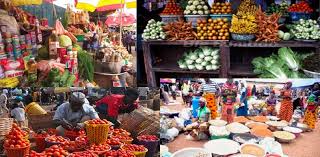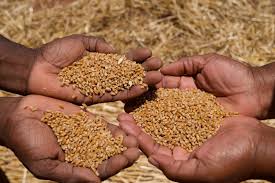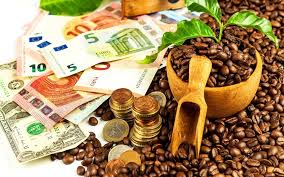![]()
If you’ve landed on this article page, you’re probably searching for a
good business idea—an idea that’s light on the pocket but heavy on
returns, promising both a fulfilling journey and potential profit.
|
How to start commodity Trading Business in Nigeria
Commodity trading involves buying and selling physical goods
such as agriculture products, energy products, precious metals,
and more on organized exchange markets. They are traded on
commodities markets and their prices are influenced by the
supply and demand dynamics of these products, amongst other
things. Investors need to educate themselves on the different
types of commodities, and how they are priced and traded.
The global commodity trading business is one of the most
lucrative and lasting ventures ever known to mankind. All
through history, nations, kingdoms, states, and more have had to
trade resources across their borders in exchange for goods and
services. This goes on till today all across the world with
physical commodities been imported and exported out of every
country.
Types of Commodities
Here are the different types of commodities that are traded on
commodities markets:
Agricultural commodities: These are raw materials and food
products such as wheat, corn, soybeans, sugar, coffee, cotton,
and livestock.
Energy commodities: These include crude oil, natural gas, and
gasoline.
Precious metals: Gold, silver, platinum, and palladium
Industrial metals: Aluminum, copper, lead, nickel, and zinc are
also traded as commodities.
Each type of commodity has its unique supply and demand dynamics
that influence its price, and some commodities may be more
volatile than others.
Nigerian Commodity Exchange (NCX): This is the largest commodity
exchange in Nigeria and West Africa and offers trading in a
range of agricultural commodities such as sesame seed, cashew,
ginger, soya beans, sorghum and groundnuts, as well as financial
derivatives and solid minerals.
Nigerian Exchange Group (NGX): The NGX offers trading in
commodity-linked ETFs and futures contracts, including contracts
for crude oil and natural gas.
Lagos Commodity and Futures Exchange (LCFE): This is a
commodities exchange that trades agricultural commodities,
currencies, oil and gas and solid minerals.
The commodity markets in Nigeria play an important role in
facilitating the flow of goods and in providing price discovery
for investors.
Here is a step-by-step process on how to trade commodities:
Choose a commodity: Select a commodity that you are interested
in trading.
Choose a broker: Find one that is licensed, and regulated and
that offers the commodity you are interested in.
Open an account
Fund your account: Self-explanatory, right?
Research and analyze the market: Research the market conditions
and historical price trends of the commodity. This will help you
make informed trading decisions.
Place a trade: Once you have identified a trade opportunity, use
your broker’s trading platform to place a trade. This will
typically involve selecting the commodity, the direction of the
trade (buy or sell), and the size of the trade.
Monitor your trade: Monitor the price movements and performance
of your trade. Adjust as necessary to manage your risk.
Close your trade: Close your trade when you have reached your
desired profit level or want to cut your losses.
How do I start trading commodities?
Educate yourself on the different types of commodities, how they
are priced and traded, and what influences their prices. Choose
a broker, open an account, develop a trading strategy and start
trading.
Which commodity is most profitable?
No one commodity is guaranteed to be the most profitable.
Commodity prices are influenced by many things, such as supply
and demand, seasonality and economic conditions. Some
commodities, such as oil and gold, have a long history of price
stability, while agricultural products, can be volatile. What
you consider profitable eventually will depend on your
investment goals, risk tolerance, and trading strategy.
What skills are needed for commodity trading?
Financial knowledge. Market analysis. Risk management. Patience
and discipline. Adaptability.
Is commodity trading profitable?
Commodity trading can be profitable, but it also comes with
risk. As with any investment, there is a risk of loss.
However, with a well-informed strategy and risk management
approach, commodity trading can provide an opportunity for you
as an investor to diversify your portfolios and potentially
generate profits.
Commodities trading are essentially betting on future demand and
supply. If paddy rice today sells for N131,666 and an investor
believes demand for rice will increase in the future, meaning an
increase in prices in the future, then he can buy a Future
contract at today’s price for future delivery or a call option.
These positions give him the right to buy paddy rice in the
future but at today’s price. If prices rise, the investor can
thus buy at the lower price and sell his commodities at the
higher price.
Notice, the investor is not looking at “fundamentals” of paddy
rice, he is just focused on determining the future demand and
supply direction of paddy rice.
Similarly, if the investor believes paddy rice supply will
increase in the future, thus leading to a fall in prices, the
investor can buy a Put i.e., an option to sell at today’s prices
today in the future, thus if prices fall the investor can still
sell at today’s higher prices in the future.
Keep in mind, buying an option gives the investor a right. If
the investor sells an option, he is giving another investor and
option to demand action from him.
Selling options is very risky
Commodity trading is about actionable information that can be
translated to investment decisions. The commodity Investor only
must make two decisions:
Will the commodity demand rise or fall leading to a rise or fall
in prices?
What is the appropriate trade to make?
Thus, the commodities trader is macro focused, seeking demand
and supply assumptions to guide investment choices. Will the
weather affect harvest of cocoa? If rains will be high and
harvests will be poor, then the investors take a position by
buying calls on cocoa. If harvests will be bountiful, the
investor can sell puts on cocoa.
Buy At The Start Of The Season:
For agricultural products, the best time is always to buy when
the season is just starting. The reason is at this time, the
prices for most agricultural products are usually 50% to 150%
lower than what the price would be 4 to 8 months down the line.
Some products that usually have this high rises in price from
the start of the season to 4 months later and rising are mostly
ginger, soybeans, maize, and some other commodities.
Buy Distressed Deals:
Distressed deals are urgent sales where a seller probably tried
to deliver to a buyer and the buyer failed to perform their
obligation to pay or any situation where a seller has a high
emergency need to want to sell off a particular product in as
little time as possible.
When a deal is distressed, the price of the product usually
drops by 10-30% and in some cases, might even drop well over
50-80%!
Whenever you see an opportunity to purchase a distressed
commodity that usually has a high value in the market place, buy
it, store it, and sell at a much higher price later.
Buy When Prices Crash For Most Reasons:
Prices of high-valued commodities could crash for many reasons;
maybe there’s suddenly a ban on transportation, a lockdown, or a
rumoured hinderance to sale. When things like this happen, many
people with the product are usually desperate to sell and in
some instance the price of the commodity can fall to well below
50% of the original price.
If you have funds in times like this and the goods are not
perishables that could be lost in a few months, you could buy
the commodities and store them for later sale in the future when
the conditions have changed and prices are now much higher due
to scarcity.
Get our practical guide on how to start commodity Trading
Business in Nigeria,
it serves as a comprehensive guide to help you get
started. We’ve taken a closer look at what commodity Trading
Business is and what skills are required while outlining a
clear, step-by-step process to teach you how to get into
commodity Trading Business in Nigeria.
|







